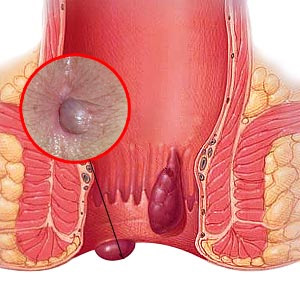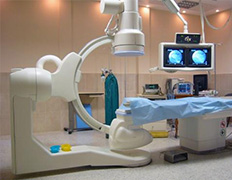Anal hematoma
Anal hematoma: Anal hematoma is a collection of blood that has leaked from blood vessels in the anus. See detailed information below for a list of 4 causes of Anal hematoma, including diseases and drug side effect causes.
Causes of Anal hematoma:
The following medical conditions are some of the possible causes of Anal hematoma. There are likely to be other possible causes, so ask your doctor about your symptoms.
- Lifting heavy weights
- Coughing
- Straining
- Bicycle riding
Home Diagnostic Testing
These home medical tests may be relevant to Anal hematoma causes:
- Colon & Rectal Cancer: Home Testing
- Home Colorectal Cancer Tests
- Home Fecal Occult Bleeding Tests
- Food Allergies & Intolerances: Home Testing:
- Home Food Allergy Tests
- Home Food Intolerance Testing
- Home Water Testing
- Home Lead Poisoning Tests
- Home Heavy Metal Poisoning Tests
- Digestive-Related Home Testing:
- Home Stomach Ulcer Tests
- Home Colorectal Cancer Test Kits
- Home Fecal Occult Bleeding Test Kits
Anal hematoma: Related Misdiagnoses
Chronic digestive conditions often misdiagnosed: When diagnosing chronic symptoms of the digestive tract, there are a variety of conditions that may be misdiagnosed. The best known, irritable bowel syndrome, is over-diagnosed, whereas other causes that are less known may be overlooked or misdiagnosed: celiac disease, Crohn’s disease, ulcerative colitis (both are called inflammatory bowel disease (IBD)), diabetic gastroparesis, diabetic diarrhea. Other possibilities include giardia, colon cancer, or other chronic infections.
Intestinal bacteria disorder may be hidden cause: One of the lesser known causes of diarrhea is an imbalance of bacterial in the gut, sometimes called intestinal imbalance. The digestive system contains a variety of “good” bacteria that aid digestion, and they can decline for various reasons, leading to digestive symptoms such as diarrhea. The main treatment is to eat foods containing probiotics, typically yoghurt cultures. See intestinal imbalance and probiotics.
Antibiotics often causes diarrhea: The use of antibiotics are very likely to cause some level of diarrhea in patients. The reason is that antibiotics kill off not only “bad” bacteria, but can also kill the “good” bacteria in the gut. This leads to “digestive imbalance” where there are too few remaining “good” bacteria in the digestive system. The treatment is typically to use “probiotics”, such as by eating yoghurt cultures containing more of the good bacteria. See digestive imbalance and probiotics.
Food poisoning may actually be an infectious disease: Many people who come down with “stomach symptoms” like diarrhea assume that it’s “something I ate” (i.e. food poisoning). In fact, it’s more likely to be an infectious diarrheal illness (i.e. infectious diarrhea), that has been caught from another person. Such conditions may be transmitted via the fecal-oral route.
Mesenteric adenitis misdiagnosed as appendicitis in children: Because appendicitis is one of the more feared conditions for a child with abdominal pain, it can be over-diagnosed (it can, of course, also fail to be diagnosed with fatal effect). One of the most common misdiagnosed is for children with mesenteric adenitis to be misdiagnosed as appendicitis. Fortunately, thus misdiagnosis is usually less serious than the reverse failure to diagnose appendicitis.
Celiac disease often fails to be diagnosed cause of chronic digestive symptoms: One of the most common chronic digestive conditions is celiac disease, a malabsorption disorder with a variety of symptoms (see symptoms of celiac disease). A variety of other chronic digestive disorders tend to be diagnosed rather than this condition. See introduction to celiac disease or misdiagnosis of celiac disease.
Chronic digestive diseases hard to diagnose: There is an inherent difficulty in diagnosing the various types of chronic digestive diseases. Some of the better known possibilities are peptic ulcer, colon cancer, irritable bowel syndrome, or GERD. Other sometimes overlooked possibilities include Crohn’s disease, ulcerative colitis, chronic appendicitis, Celiac disease, Carcinoid syndrome, gastroparesis, and others. See all types of chronic digestive diseases.
Our Expertise in Medical Services
Rana Hospital was started with a dream of providing the best facilities for Piles, Fissures, Fistula and all Anorectal problems.

Mon to Sat:
8:30 AM – 1:30 PM
4:00 PM – 6:30 PM
Mon to Sat:
9:00 AM – 1:30 PM
4:00 PM – 6:30 PM
Get Appointment Now
 Accreditation & Awards
Accreditation & Awards
The Hospital organized a free checkup camp for PILES on 24th October 2013 in which 717 patients from all over India were examined. It was followed by one day free operation camp on 27th October 2013. Dr Suri single-handedly performed 391 free surgeries in 8 hours & 45 minutes setting a World Record.





